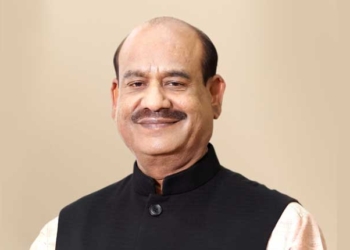New Delhi: The Delhi High Court has acquitted a man convicted under the Protection of Children from Sexual Offences (POCSO) Act, ruling that the phrase “physical relations” used by the prosecutrix was too vague to constitute proof of rape or penetrative sexual assault.
Observing that the prosecution had failed to prove the essential ingredients of the offences beyond reasonable doubt, a single-judge Bench of Justice Manoj Kumar Ohri said: “In the peculiar facts and circumstances of this case, the use of the term ‘physical relations’, unaccompanied by any supporting evidence, would not be sufficient to hold that the prosecution has been able to prove the offence beyond reasonable doubt.”
The appellant, Rahul @ Bhupinder Verma, had been sentenced to 10 years of rigorous imprisonment by a trial court for allegedly having sexual relations with his 16-year-old cousin on the pretext of marriage.
The FIR was registered in March 2016, nearly one and a half years after the alleged incident.
In his judgment, Justice Ohri noted that the delay in lodging the FIR was inadequately explained.
“In the absence of concretely established reasons, the delay of one and a half years in reporting the incident assumes importance,” the court said, adding that there was “no evidence on record to prove that she did not have the ability to speak from the time since the incident till the FIR came to be registered”.
According to the prosecution, the victim had lost her voice after consuming poison when the accused refused to marry her, and the complaint was lodged only after she regained her ability to speak.
However, Justice Ohri found no medical evidence to corroborate that claim, saying: “There is no evidence on record to prove that she did not have the ability to speak from the time since the incident till the FIR came to be registered.”
The Delhi High Court added that neither the Indian Penal Code (IPC) nor the POCSO Act define the term “physical relations”, and its mere use in testimony could not automatically be read as rape or penetrative sexual assault.
“Whether use of expression ‘physical relations’ would automatically mean rape/penetrative sexual assault or there has to be some further description, or other evidence, to establish the connection between the term ‘physical relations’ and the offence?” it asked.
Relying on a recent Delhi HC ruling, Justice Ohri noted that “the phrase ‘physical relations’ cannot be converted automatically into sexual intercourse, let alone sexual assault”.
The bench said the trial court and the prosecution failed to seek clarity from the victim during her testimony.
“No clarification was sought, either by the APP or the court, as to what the child victim meant by the term ‘physical relations’ and whether it fulfilled the ingredients of penetrative sexual assault,” observed Justice Ohri.
The Delhi HC added that it is the “statutory duty of the Court to ask certain questions to discover or obtain proper proof of the relevant facts” under Section 165 of the Evidence Act, especially when dealing with vulnerable witnesses.
Calling it an “unfortunate case”, Justice Ohri set aside the conviction and directed that the appellant be released from custody “forthwith, if not required in any other case”.
“Accordingly, the appeal is allowed and the impugned judgment is set aside and the appellant acquitted. As a necessary sequitur, the appellant is released from the jail forthwith, if not required with any other case,” the bench said.
(IANS)
















